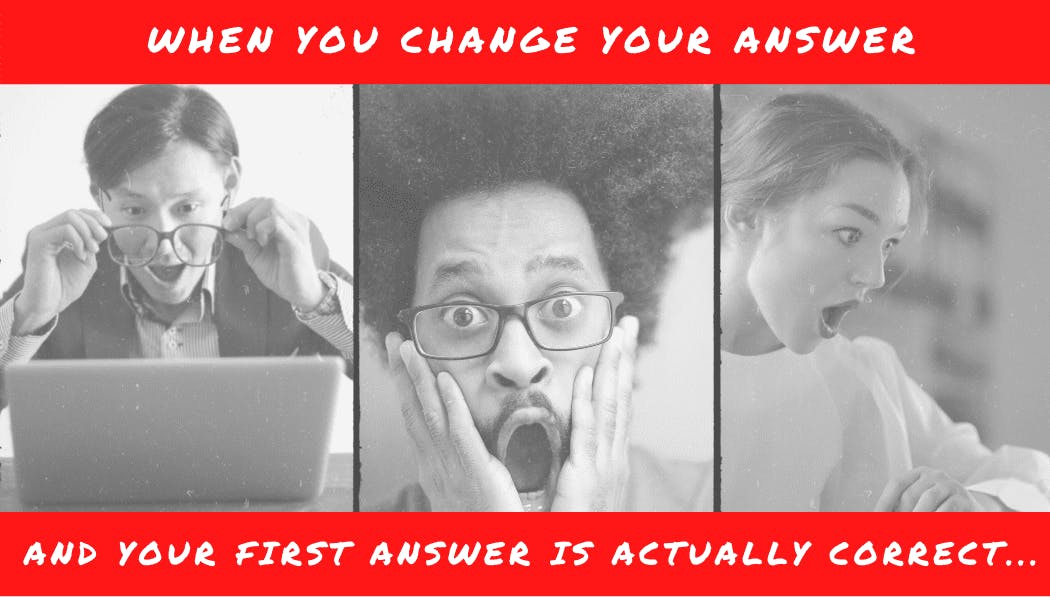
You've read through the question and chosen an answer, but there's just something about one of the other answer choices that you can't let go. It looks like a legitimate answer, maybe it's a term you forgot? It sounds like a good answer, but you can't quite put your finger on why it may or may not be a good answer. So before moving on, you quickly change your answer to this shiny, new answer and submit your test, only to find out you not only got it wrong, but your original answer was correct! We've all been there and we've heard the very rational advice of "just don't change your answer..." Easier said than done right?
If this is a common trap that you fall into, check out the tips below to help you weigh your options and practice not changing your answers unless one of the following is true.
- You recalled additional relevant information. If new information comes to mind (you have an "a-ha" moment or another question gives you the information you needed), then re-evaluate the question with the new information and review the answers with this information in mind.
- You misread or misinterpreted the question or answer choices. Sometimes we miss a keyword or read a sentence incorrectly, which changes the meaning of the question or answer. If you're considering changing your answer, re-read the question and answer options to make sure you are reading what's in front of you and not adding or missing words (run your finger across the screen to ensure you've read each word and can catch key words). If you realize that you misread or misunderstood what the question is asking of you, then re-evaluate the question and change your answer as appropriate.
- You accidentally picked the wrong answer. Sometimes fatigue sets in, anxiety gets the best of us, or technology just doesn't cooperate and we click the wrong answer by accident. If you selected the wrong answer by accident, then by all means, change the answer!
Outside of new or clarified information or complete accident, leave your initial answer choice as it's most likely to be correct. If you have to convince yourself another answer is correct but can't really explain why it's correct or your current answer is incorrect, then leave it alone. Practicing these strategies will help you build a solid habit by test day and every time you commit to not changing your answer and get it right, you're building evidence that you know more than you think!


